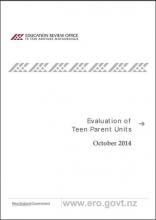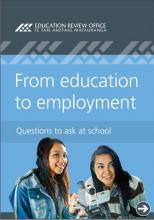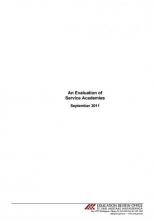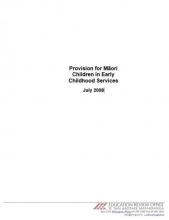Secondary-Tertiary Programmes (Trades Academies) What works and next steps
The report examines how well 15 of New Zealand's Secondary-Tertiary Programmes (STPs or Trades Academies) are meeting the needs of students at risk of not staying or succeeding in education.















